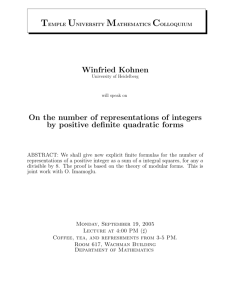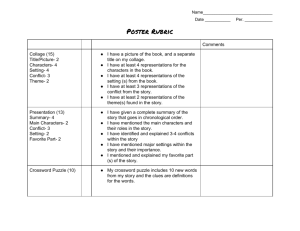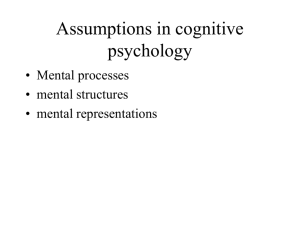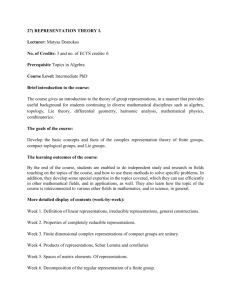Visual keys of resistance and change: Activist website images
advertisement
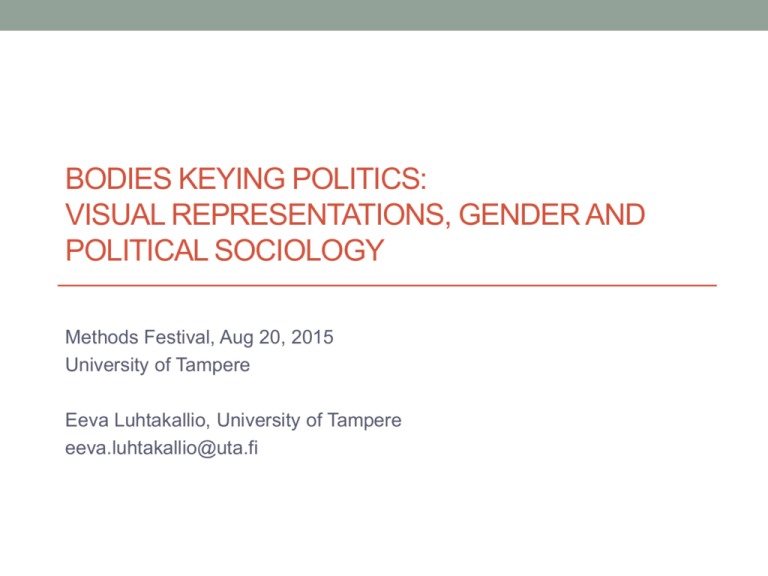
BODIES KEYING POLITICS: VISUAL REPRESENTATIONS, GENDER AND POLITICAL SOCIOLOGY Methods Festival, Aug 20, 2015 University of Tampere Eeva Luhtakallio, University of Tampere eeva.luhtakallio@uta.fi Political sociology, gender, and the visual sphere • Political sociology’s new coming, with what we’ve learned from the linguistic turn • E.g. European Journal of Cultural and Political Sociology • Jeffrey Alexander’s, Nina Eliasoph’s, Paul Lichterman’s… etc. current work • Pragmatist, micro-oriented, culturally sensitive approach demands gender analysis beyond “factor treatment“ brings visual culture closer to the core of examination of political phenomena challenges methodological work to find new solutions One methodological suggestion, two illustrations • Goffman’s frame analysis adapted to visual representations • Case1: activist website images from Finland and France – context comparison of gender in political imagery • Case2: magazine covers from Finland – comparison in time of changes in gender representations Dominant frames and keying • A dominant frame is the primary analysis of a situation. • Keying is interpretation that directs and focuses – and sometimes transfers or even switches – the meaning of an image in a given situation. • How gender keys the dominant frames of demonstration, violence, and performance in Helsinki and Lyon – features of mass gatherings, struggle, protest policing, and performativity that were repeatedly visualized in activist publicity? • How the frames and keyings of gender change in time (1950s-2010s) in Finnish periodicals? 1. Dynamics of gender in visual representations of everyday contention • Puzzle: how to tackle embodiment and gender dynamics in social movements • Visual representations: images collected from the websites of local social movement activists in Lyon (N=230) and Helsinki (N=275), collected as part of an ethnographic fieldwork Dimensions of the material • I analyzed the activist sites as cultural representations that a viewer needs to frame in order to understand what is going on, and to key in order to understand how this going-on is happening • The frames of demonstration, violence, and performance cover 47% of the material in Lyon, and 48% in Helsinki, and the gender keying is one of the most crucial elements throughout the material, while being the most articulate within these three frames. Why the comparison? • France 1. Popular uprisings as building blocks of the Republic 2. Gender culture emphasizing sexual difference and radical feminism • Finland 1. Civil society historically a partner to the state, not a protest force 2. Gender culture emphasizing equal treatment and neutrality • Yet, isomorphism in today’s (European) activism Dominant frame of demonstrating in Lyon (left) and Helsinki (right). Feminine keying of demonstrating in Helsinki Gender keying the frame of violence in Helsinki Masculinities keying the frame of violence in the Lyonnais (left) and the Helsinki material (right) The frame of performance keyed with gender ambiguity in Helsinki (left), and in Lyon (right) What do we learn from the gender keyings? • The representations of local activism portray gender through keyings that both reproduce and fracture the gendered division of labor of activism, the prevailing power structures, and the entire social order • Masculine leadership, confrontations between the activists and the police – yet, keying dynamics of nonuniform masculinity • Similarly, childlike, ‘sweet’ femininity – yet, representations of visible feminine aggressiveness • Coincidence of gender ambiguity and performative dimensions of contention How to understand “cultural differences” in gender representations? • Activist isomorphism + French polarizations + Finnish • • • • gender neutrality? Features of “Frenchness” and “Finnishness” + locally embedded + situational features? The importance of looking at cultural isomorphism and differences simultaneously, and with a localized, sensitive eye “General trends”, such as blurred gender representations as markers of performative activism, gain in local resonance, and “local features” gain in isomorphic connections Understanding gendered and embodied contention in the intersections of the global and local features of activism 2. Gender representations in mainstream publicity • What kind of gender representations are the most culturally predominant, and how do they change in time? The gender system visualized? • Covers of periodicals – Kotiliesi, Me Naiset, Seura and Suomen Kuvalehti – with depictions of human beings from 1955 (n=118), 1975 (n=165), 1995 (n=147), and 2010 (n=136). • Dominant frames of • Desire and gaze • Relationship and reproduction • ‘Culture’ and art • Politics and power Trends of mainstream gender representations: femininity • Partially “circular” development: from traditionalistic representations of desirability and motherhood (1950s) to problematized visualizations of women’s status (1970s) to increasing multiplicity and extremes – pin-up type pictures vs portraits of powerful female ministers – (1990s) and finally to a relative return of traditionalistic themes (2010s) • Partially “linear” development: the complexity and multiplicity, as well as the “reflexive” dimension in women’s representations increase Trends of mainstream gender representations: masculinity • The most general trend is the fading of masculinity: images of men disappear little by little • The powerful, middle aged white man dominates the framing of masculinity • The playful, feminine male is rarely represented • In order to portray reflexivity or emotions, men “need” mediators, usually women, rarely children 1955 1975 1995 2010 What political sociology should learn from visual studies (and the other way round) • The importance of visual material in everyday life and therefore also in political life keeps increasing • Visual culture is (also) a vehicle in emphasizing the need to include gender as an inherent dimension to political analysis • In a world touched by so many dimensions of performative power, the combination of visual and political analysis is crucial in understanding power relations, the conditions for democratic governance, and means of participation Further readings • Eeva Luhtakallio: “Bodies Keying Politics. Visual Frame Analysis of Gendered Local Activism in France and Finland.” Social Movements, Conflict and Change vol. 35, April 2013, Guest-edited by Doerr, N., A. Mattoni & S. Teune • Eeva Luhtakallio: Practicing Democracy. Local Activism and Politics in France and Finland. Basingstoke: Palgrave Macmillan, 2012. • Eeva Luhtakallio: “Visuaalinen julkisuus ja sukupuolten representaatio”. Chapter accepted for publication in Heiskala & Husso eds. Sukupuolikysymys, Gaudeamus forthcoming.
